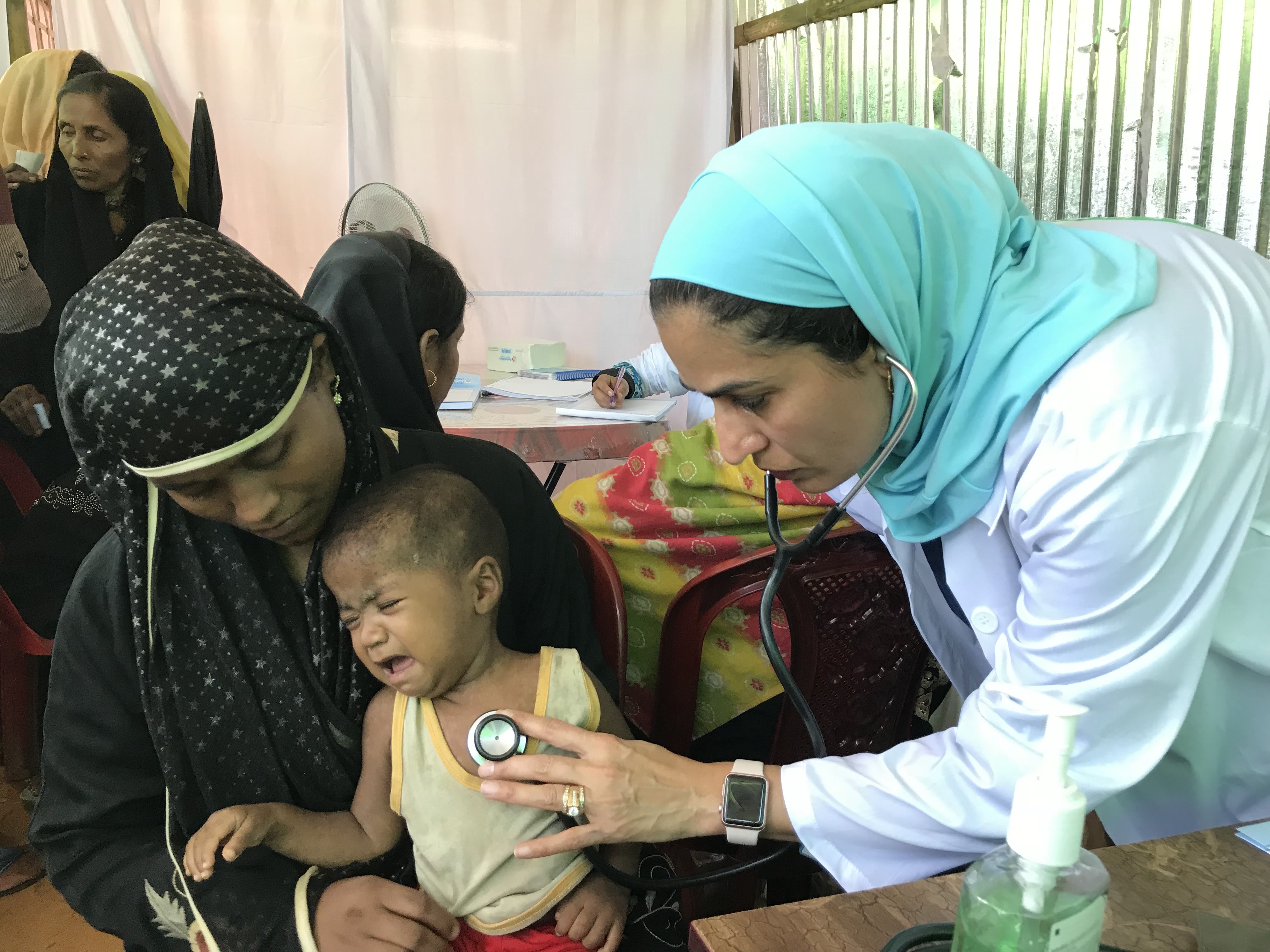In 2017, when Airdrie doctor, Fozia Alvi saw the images of Rohingya Muslim refugees who were pouring into Bangladesh, fleeing genocide, she had to act. She is still doing that today.
c
(Editor's note: Details in this article may be traumatic for some readers and may cause triggers.)
In 2017, Dr. Alvi would travel to Bangladesh on a medical mission. Months before, she raised funds to open a hospital in her home country of Pakistan. Though she initially wanted to focus her efforts on a maternity hospital as Northern Pakistan has some of the highest infant mortality rates in the world, the demand from locals for a full-fledged hospital meant that she expanded her scope. She would be nominated for a Nobel Peace Prize two years later.
"I've I lived in Canada most of my life, but I can't forget the misery that I've seen growing up there [in Pakistan]," she said. "As a physician, I am guided by the principle that every and each human life is precious, even the ones far away from home. So I just wanted to contribute back."
In August 2017, Myanmar, a Buddhist-majority country, would use its military to begin a brutal assault on one of the country's religious minorities; the Rohingya Muslims. After civilians were killed in violent mob-style attacks, those who could, would flee to the neighbouring country of Bangladesh.
"I saw the images of those people carrying their loved ones and pregnant patients crossing the rivers to the border. I contacted some doctors who were in Bangladesh, and I said, 'I can come there and help out, if you need female doctors, for pregnant women.'," Dr. Alvi said. "At that time, I was hearing the news about 80,000 pregnant women, and there were no female doctors. So I went there with two of my colleagues."
She would see first-hand the squalor and misery the refugees lived in, inside the massive refugee camps, prompting her to begin her work of supporting medical clinics on the ground. Dr. Alvi estimates that there are one million refugees in Bangladesh, a country that is ranked by the World Bank's World Development Indicators as one of the poorest in the world.
"Those one million people are totally dependent on NGOs (Non-Governmental Organizations). If they are lucky, they get two meals a day, by the blessings of the NGOs; otherwise, Bangladesh cannot afford them," she said.
Refugees are not able to access education, nor do they have access to clean water or chances of employment. Medical care is almost non-existent.
"The first time I went there, there were 50,000 orphans. They have seen their parents killed in front of them. 90 per cent of the people there have lost their loved ones. So I started talking to my colleagues and I said, 'how about if we donate one day's wages of our work'. So we gave one day's worth of what we earned. It's just a small token."
While the faces of the men, women, and children are engrained in Dr. Alvi's mind from her time in Bangladesh, there is one particular face that stands out from her very first visit. The girl in the red dress. When Dr. Alvi was on her way back from visiting one of the refugee camps, there was a shelter that she and a social worker stopped at. There, she met a mother and her daughter. The woman recounted the horrendous acts of murder carried out by Myanmar soldiers which claimed the life of her infant and her husband - both were killed in front of her. The woman said she would be rounded up with others from the village and held captive for 15 days while being raped at the hands of Myanmar soldiers.

Humanity Auxlium is funded by donations that go towards medical relief, along with education and general relief in areas like Bangladesh. Dr. Alvi last visited Bangladesh in 2019 and even though the COVID-19 pandemic has halted her travel plans, she has not stopped championing the rights of the refugees. Dr. Alvi observed that while COVID-19 has tested even the wealthiest of countries, it has completely ravaged places like Bangladesh.
"We started this COVID clinic because COVID is considered a stigma in that camps. If they get sick, they don't go to see a doctor, because they think that if they will be COVID positive, then they will be sent to the remote island," she said.
According to a Human Rights Watch report from November 2021, Bhasan Char Island is where, "...Bangladesh authorities have already moved nearly 20,000 Rohingya refugees to the remote, flood-prone island..."
Since her first trip to Bangladesh, Dr. Alvi has also spoken out against the atrocities committed against the Rohingya Muslims, meeting with Prime Minister Trudeau in 2018. When ask about her Nobel Peace Prize nomination she said she felt she was undeserving of it.
"It's not about me. I still get embarrassed about it when I tell people. It's not about me, it's about those poor people who are still suffering."
Though numbers vary and it is difficult to pinpoint the exact number of casualties, reports estimate that over 24,000 Rohingya Muslims were killed during the genocide in Myanmar. However, numbers from the ASEAN Parliamentarians for Human Rights (APHR) state that, "43,700 parents of Rohingya Muslim children" have gone missing.
Send your news tips, story ideas, pictures, and videos to news@discoverairdrie.com





